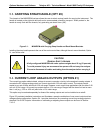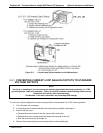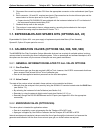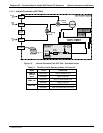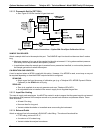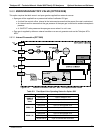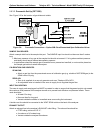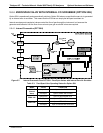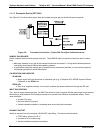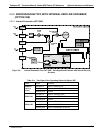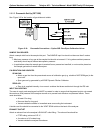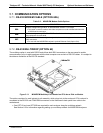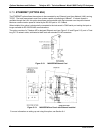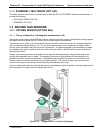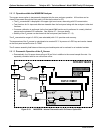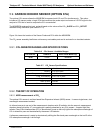
Optional Hardware and Software Teledyne API – Technical Manual - Model 300E Family CO Analyzers
70
5.6.4.2. Pneumatic Set Up (OPT 50H)
See Figure 3-2 for the location of gas inlets and outlets and span gas no shutoff valves are required.
Figure 5-8: Pneumatic Connections – Option 50H: Zero/Span Calibration Valves
SAMPLE GAS SOURCE:
Attach a sample inlet line to the sample inlet port. The SAMPLE input line should not be more than 2 meters
long.
Maximum pressure of any gas at the sample inlet should not exceed 1.5 in-Hg above ambient pressure
and ideally should equal ambient atmospheric pressure.
In applications where the sample gas is received from a pressurized manifold, a vent must be placed on
the sample gas before it enters the analyzer.
CALIBRATION GAS SOURCES:
SPAN GAS:
Attach a gas line from the source of calibration gas (e.g. a Teledyne API’s M700E Dynamic Dilution
Calibrator) to the SPAN inlet.
ZERO AIR:
Zero air is supplied internally via a zero air scrubber that draws ambient air through the IZS inlet.
INPUT GAS VENTING:
The zero air supply and sample gas line MUST be vented in order to ensure that the gases input do not exceed
the maximum inlet pressure of the analyzer as well as to prevent back diffusion and pressure effects. These
vents should be:
At least 0.2m long;
No more than 2m long and;
Vented outside the shelter or immediate area surrounding the instrument.
EXHAUST OUITLET
Attach an exhaust line to the analyzer’s EXHAUST outlet fitting. The exhaust line should be:
PTEF tubing; minimum O.D ¼”;
A maximum of 10 meters long;
Vented outside the analyzer’s enclosure.
04288D DCN5752



